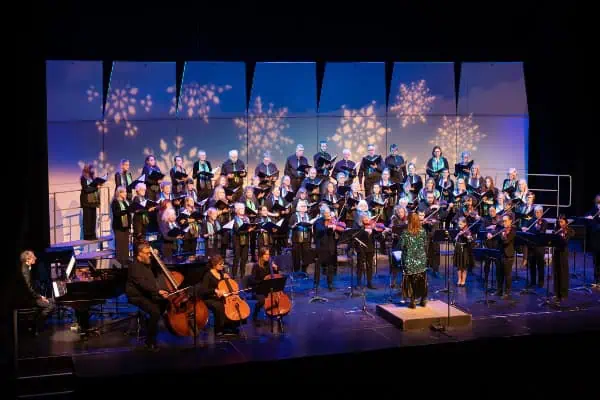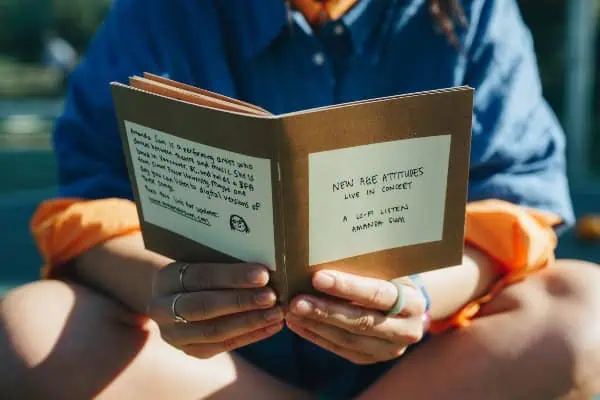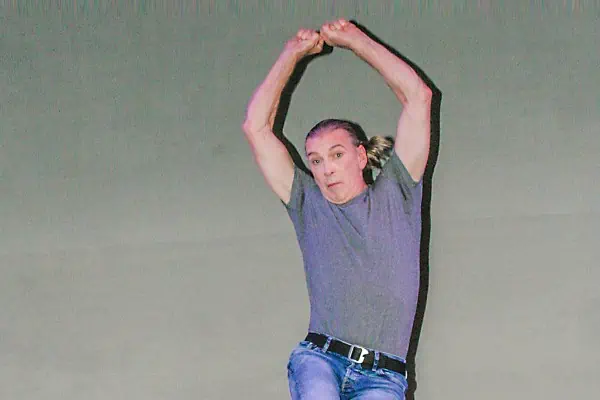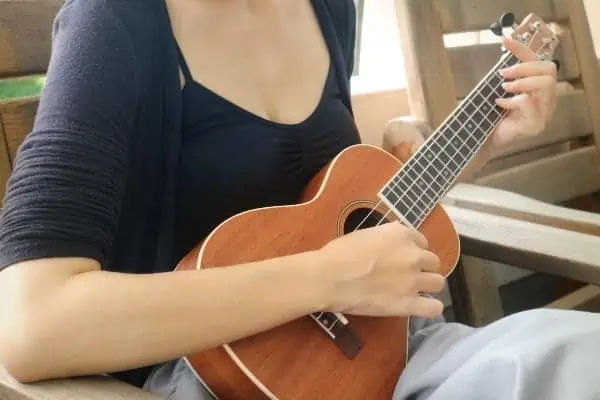It’s been 30 years, or thereabouts, since I first ran into the iconic Canadian folksinger-songwriter-poet who goes by the simple – but exotic-sounding – name of Ferron.
There was no reason she should remember me. I was just a volunteer driver for the Edmonton Folk Festival, shuttling performers to and from the airport. But I remember her as if it were yesterday.
Ferron was a relative newcomer to the game back then (her self-titled first release launched in 1977, followed by Backed Up the next year, and the groundbreaking Testimony in 1980).
But she already displayed chops that would eventually make her one of North America’s best-respected songwriters.
Some call her the female Bob Dylan. Or Bruce Cockburn. Or Leonard Cohen. Or Van Morrison. Many cite her influence on Ani DiFranco and the Indigo Girls. It may be subjective, but it’s not without merit.
What I remember most was a speaking voice best described as honey on gravel. Deep. Strong. No nonsense in either style or substance. For fans of CBC News, think Ann Medina. Same timbre, same cadence.
I also remember the animated conversation she was having with a young Saskatoon performer. She was telling him about a marvelous music festival called Farrago, in the then-prosperous mining town of Faro, somewhere in the bush way up in the Yukon.
When word got out that Ferron (now with a dozen CDs to her credit, and another in the works) was returning to the Yukon with an all-star band, it was time to get reacquainted.
OK. I was nervous. I’ve interviewed many musical icons in my time, but this one was also a feminist icon, a lesbian icon. With a voice that could crush titanium.
“It’s an external description,” she would tell me later. “It’s not me walking around saying I’m an icon. That would be the representation of an asshole.”
What if she had only distain for some strange older man who once carefully, respectfully – but anonymously – ferried her from Edmonton International Airport to the festival site?
There was no mistaking the Medina-esque voice at the other end of the line. A little more gravel, a bit less honey, perhaps. She is 65, after all. The cadence was familiar, but restrained. Cautious. The first exploratory salvos met with one-word answers.
“This could be brutal,” I thought. “She’s gonna eat me up and spit me out.”
Somewhere around Minute 7, the floodgates opened. Suddenly, I was drenched by a torrent of words, images, recollections, an emotional and philosophical openness seldom experienced with a stranger.
Ferron (her birth name was Deborah Foisy, but don’t say I told you) grew up in a “pretty violent” household, striking out on her own at 15 “because it was better for me to do that.”
Hitting the road so young was scary, she admits, not something she would recommend if she had a 15-year-old.
“I don’t think I’d want them to be alone with nothing, and no money, and no plan. But that’s what a lot of us did from our age group,” she says.
“I had to find my courage from inside. And I was a girl. I was kind of invisible, except for dark energy. But I managed – mostly – to stay away from that.”
In a sense, Ferron suggests, she brought herself up.
“I have a moral code inside of me that wasn’t taught to me. It wasn’t paid for, or anything; it’s truly mine.”
She credits that inner moral compass with leading her through a turbulent youth, where she didn’t fit in with the “normies”, and navigating her safely to the other side.
“It ended up being, in the end, a wonderful story of someone that was stuttering, who couldn’t express their views, who didn’t know what their views were, to finally becoming my own, lone voice in the wilderness. So that’s OK with me.”
And, of course, there was always music and poetry.
She had been playing guitar since the age of 10 and writing songs and poems in a little notebook throughout junior high. Although that notebook got stolen when she was in high school, she still wishes she could access those early creations.
“But it ain’t gonna happen,” she says.
Ferron has forged a career from writing and performing unflinching songs that strike directly at the heart of human vulnerability and doubt.
“I just always wanted to know what it meant to be a positive human being. What are we alive for? What are we doing? Who am I? How am I puncturing my own dreams? How am I misreading a situation out of my own fears?”
She has, she admits, spent “year after year thinking about stuff like that, writing about it and weighing the arrogance of humans – in myself as well – against my fragile anxiety of whether I was a good person or not.”
Apart from her forays onto the road to perform, Ferron now spends half of each year living in western Florida, near the Gulf of Mexico, where she enjoys making make quilts.
The other half is spent on Saturna Island in British Columbia, an enclave with only 300 people, where she first lived when she was only 18, and where she recently held a “pension party” to celebrate turning 65.
“It was really fun to be around people I’ve known, and who have known me, all my life. They keep me on centre,” she says.
After years of introspection, and insecurity about whether or not she measured up to the expectations of the “normies”, she now has the answer.
“In the last 25 years or so, I have believed that I am a viable, good person – except for whatever it is I don’t know yet, because we keep learning. So, all those insecurities went away.”
She’s content with the fact she never became “dizzyingly famous”, although she continues to have a busy and successful career.
But it’s a far cry from the two “lost” years she spent while she was signed to Warner Brothers Records.
“They were at the helm, and they took me right down the white rapids. So, after that it was, ‘OK, we’re not doing that any more. I’m going to steer my own boat,’” she says.
“When you steer your own boat, it’s much slower, and it can’t go past your envisioning place. I’d never envisioned being Celine Dion or something. That’s a whole other life; it’s a whole other line of work. My work was songwriting and poetry.”
When she and fellow Canadian legend Roy Forbes teamed up as the closing act for the Vancouver Folk Music Festival’s 40th anniversary celebration this summer, her boat was back in a familiar harbour.
“Vancouver is where I started out,” she says.
“I didn’t start out at the folk festival opening it up, or closing it. I started out in the middle of the afternoon on a side stage. It was a great journey to see that come about, and know that it came about honestly.”
Whenever she can, she gets together with a group of old musical friends – bassist Don Benedictson, keyboard player Darryl Havers, multi-instrumentalist John Ellis, and drummer Chris Nordquist, to perform under the banner of Ferron and Her All Star Band.
After a sold-out gig at the prestigious Freight & Salvage performance venue in Berkeley, California last February, they soon found themselves booked for a National Arts Centre-sponsored mini tour that will bring them to the Yukon Arts Centre stage this Sunday, September 17.
The concert starts at 7:30 p.m., and general admission is $40.
The Farrago Music Festival may be a thing of the past, but Ferron is returning to the Yukon after an absence of three decades.




